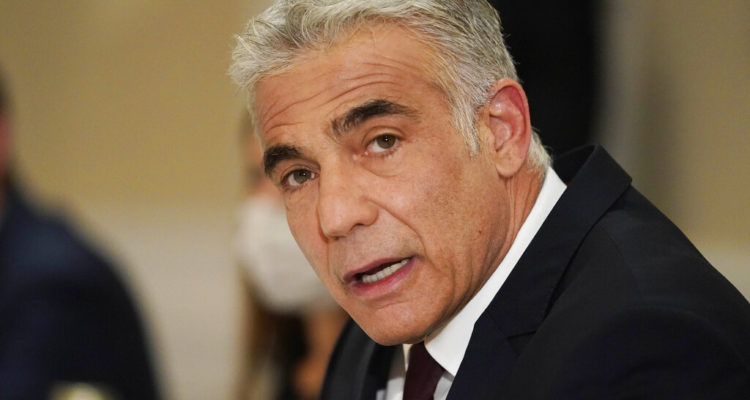A statement from the Israeli foreign minister said the agreements “will bring our countries innovation and opportunities for the benefit of our children — and their children — for years to come.”
By Associated Press
The foreign ministers of Israel and Morocco on Wednesday signed three accords in a new step toward strengthening ties less than a year after agreeing to normalize relations.
Visiting Israeli Foreign Minister Yair Lapid and Nasser Bourita, his Moroccan counterpart, signed off on an air service agreement between the North African kingdom and the state of Israel and an agreement to cooperate in the fields of culture, sports and youth.
They also signed a memorandum of understanding on the establishment of a political consultation mechanism between their countries’ foreign ministries.
It was not immediately clear what such a memorandum would encompass but appeared to fit into the wider design of the face-to-face diplomacy during Lapid’s two-day visit to Morocco. The trip will be capped on Thursday by the inauguration of Israel’s liaison mission in Rabat, the capital.
Lapid’s visit is the first to the country by an Israeli minister since 2003, and the first such meeting in Morocco since the U.S.-brokered “Abraham Accords” with four Arab states: the United Arab Emirates, Bahrain, Sudan and Morocco.
A statement from the Israeli foreign minister said the agreements “will bring our countries innovation and opportunities for the benefit of our children — and their children — for years to come.”
Israel and Morocco are teaching children about “the power of hope” in a world “that has shrunk,” Lapid’s statement said..
He is slated to become prime minister in 2023 under Israel’s eight-party coalition government.
Israel and Morocco share a long history of formal and informal ties. Many Israelis have lineage that traces back to Morocco, which is still home to a small community of several thousand Jews.
Israeli Minister of Labor and Welfare Meir Cohen, part of the delegation, was born in Essaouira, on the Atlantic coast.
“For him this is a homecoming,” Lapid said in his statement, and in the future Israelis “will not travel here as tourists, they will travel as family, to explore their heritage and their memories.”
Israel and Morocco had low-level diplomatic relations in the 1990s, but Morocco cut them off after the second Palestinian uprising erupted in 2000. The two countries maintained informal ties, with thousands of Israelis traveling to Morocco each year.





